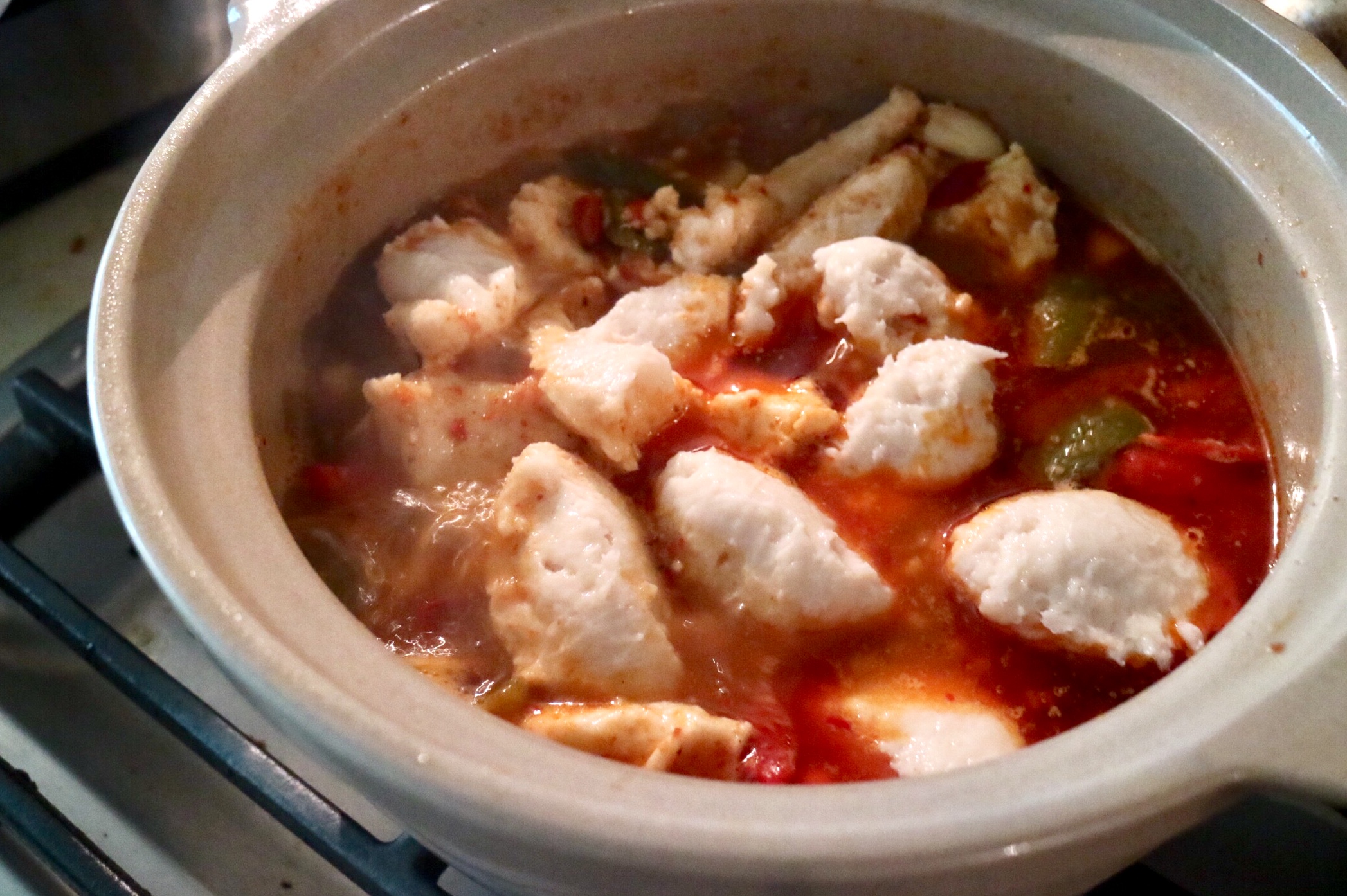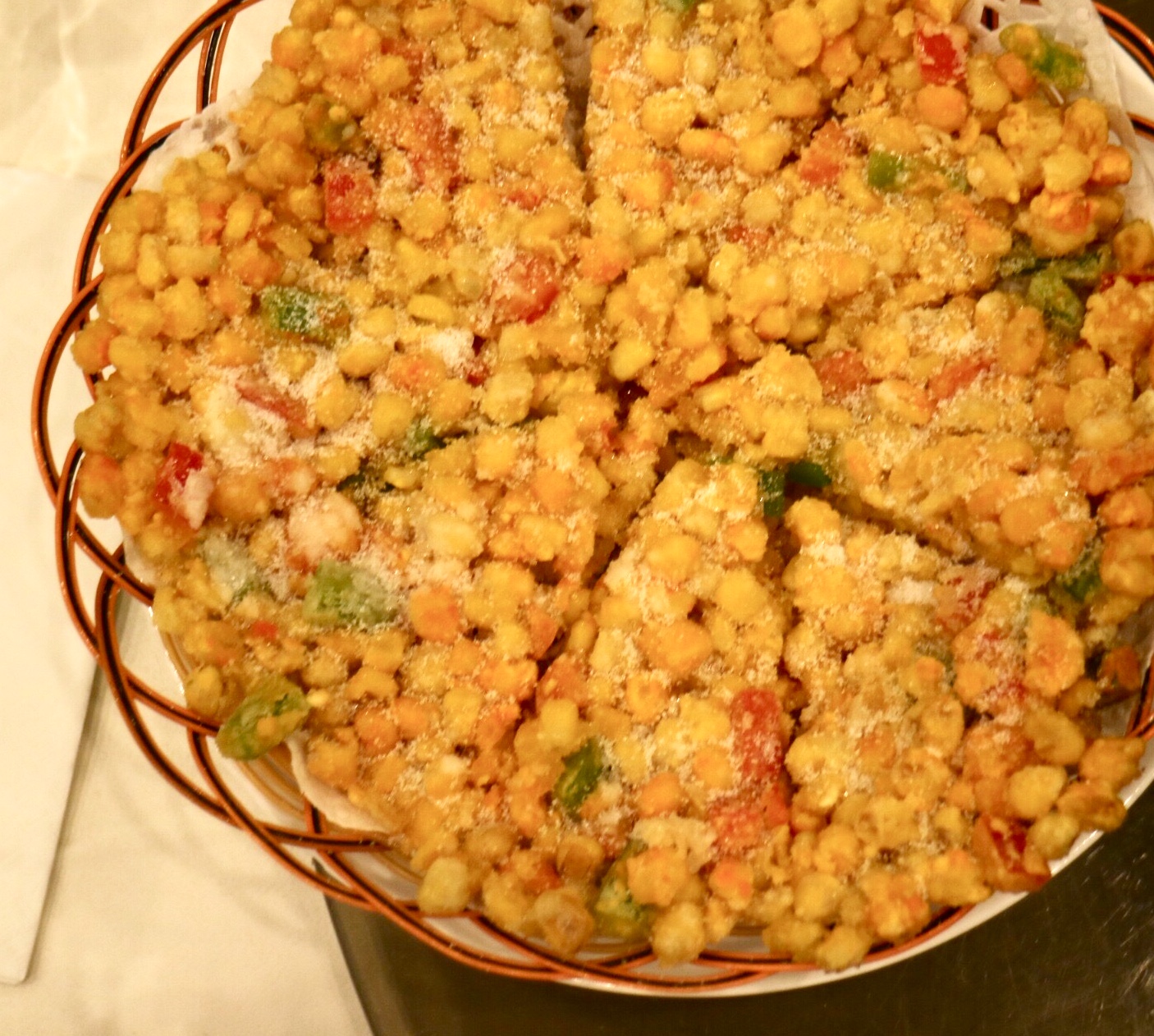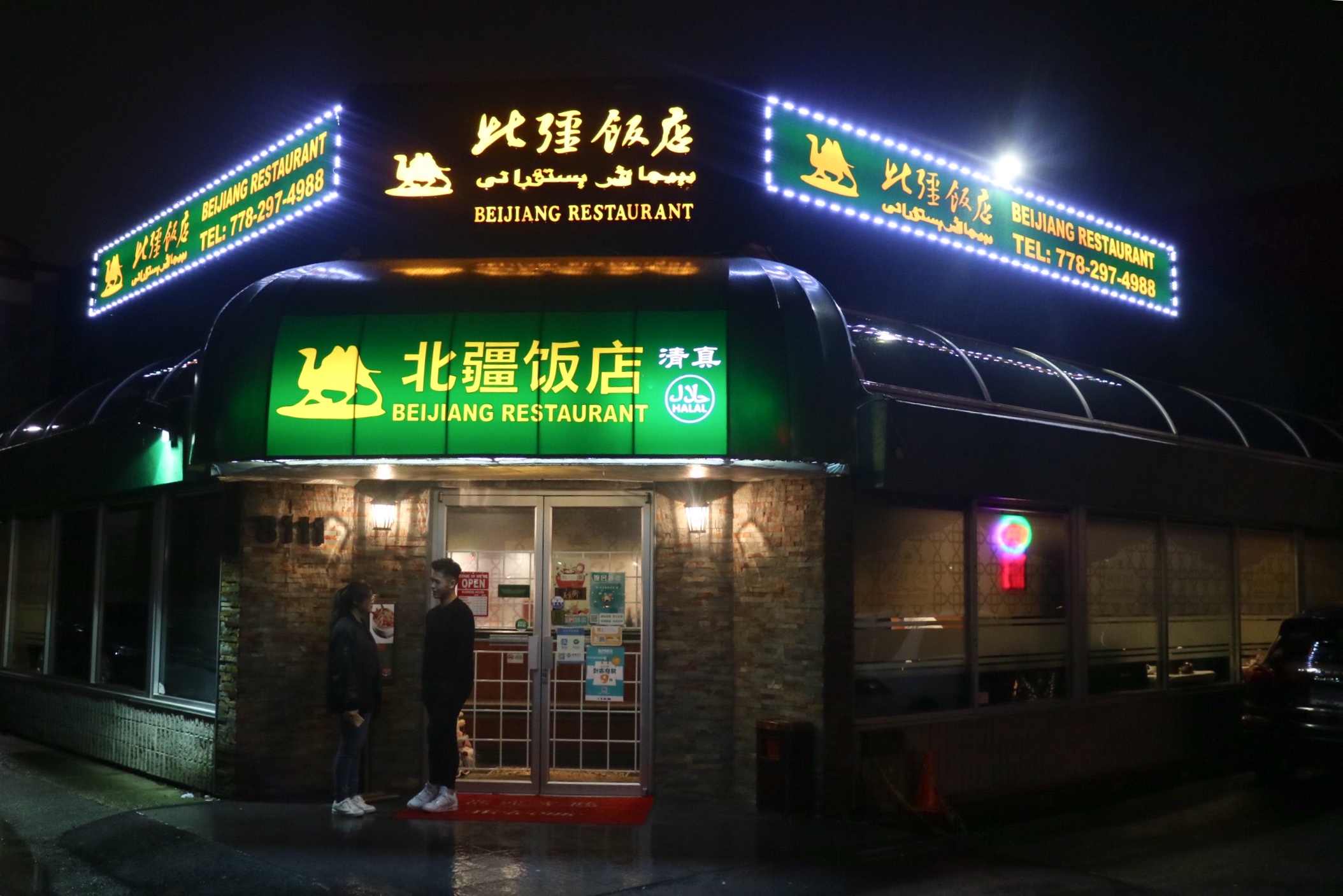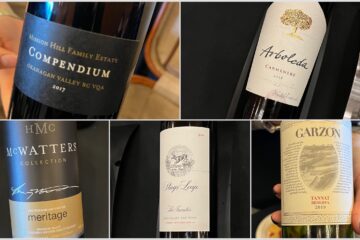Don’t mistake the “Beijiang” in Beijiang Restaurant as “Beijing”!
Bei-Jiang in Chinese refers to the northern part of Xinjiang Autonomous Territory, the largest province in China. Almost every single Chinese folk knows about the Tianshan Mountain, or literally, the “Heavenly Mountain”, a world heritage site in Xinjiang that has inspired many works of Chinese arts and literature. The mountain is the divider splitting Xinjiang into the northern and the southern regions. While the south consists of mostly desserts and is inhabited by Uyghurs, the north is much more populated with Han, Hui, Uyghur, Kazakh, and other Chinese ethic groups.
The owner of Beijiang Restaurant, Richard Li, grew up in Ürümqi, the Capital of Xinjiang. After traveling around the world, and a successful restauranteur career in California and BC, he decided to start the very first Halal restaurant in British Columbia, to bring his hometown flavours to Metro Vancouver in 2009. Recently relocated from Alexandra Road, the Richmond restaurant has taken over former Good Eat Seafood Restaurant‘s location at 8111 Leslie Road, with a much bigger dining room and a parking lot with ample space. Beijiang also has another location in Vancouver, at 3281 Kingsway.
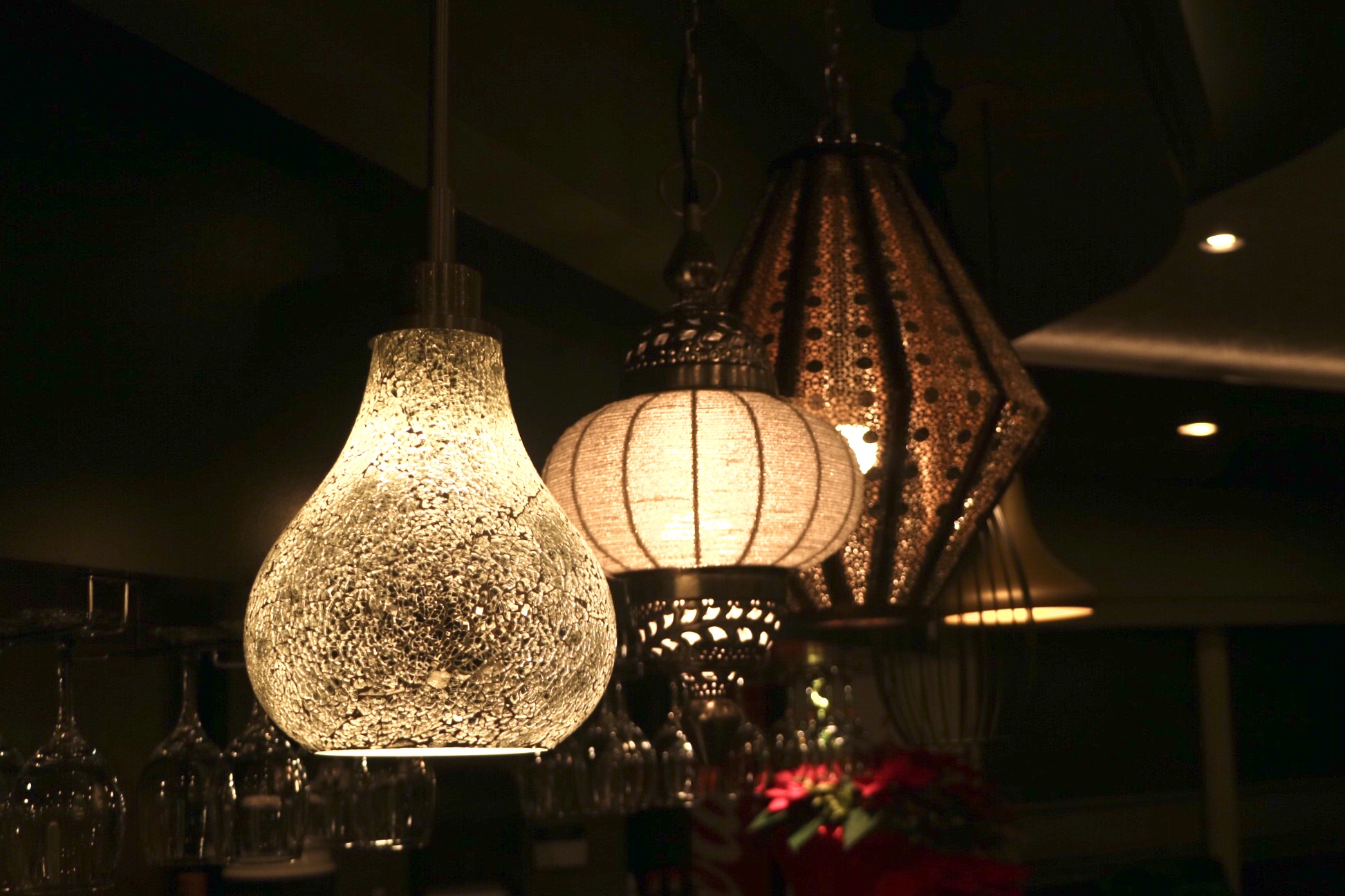
The interiors are impressive with a vibrant colour scheme of gold and pine green, implying an exuberant culinary culture inspired by ancient nomads living across the desert and oasis in the northwest territory of China.
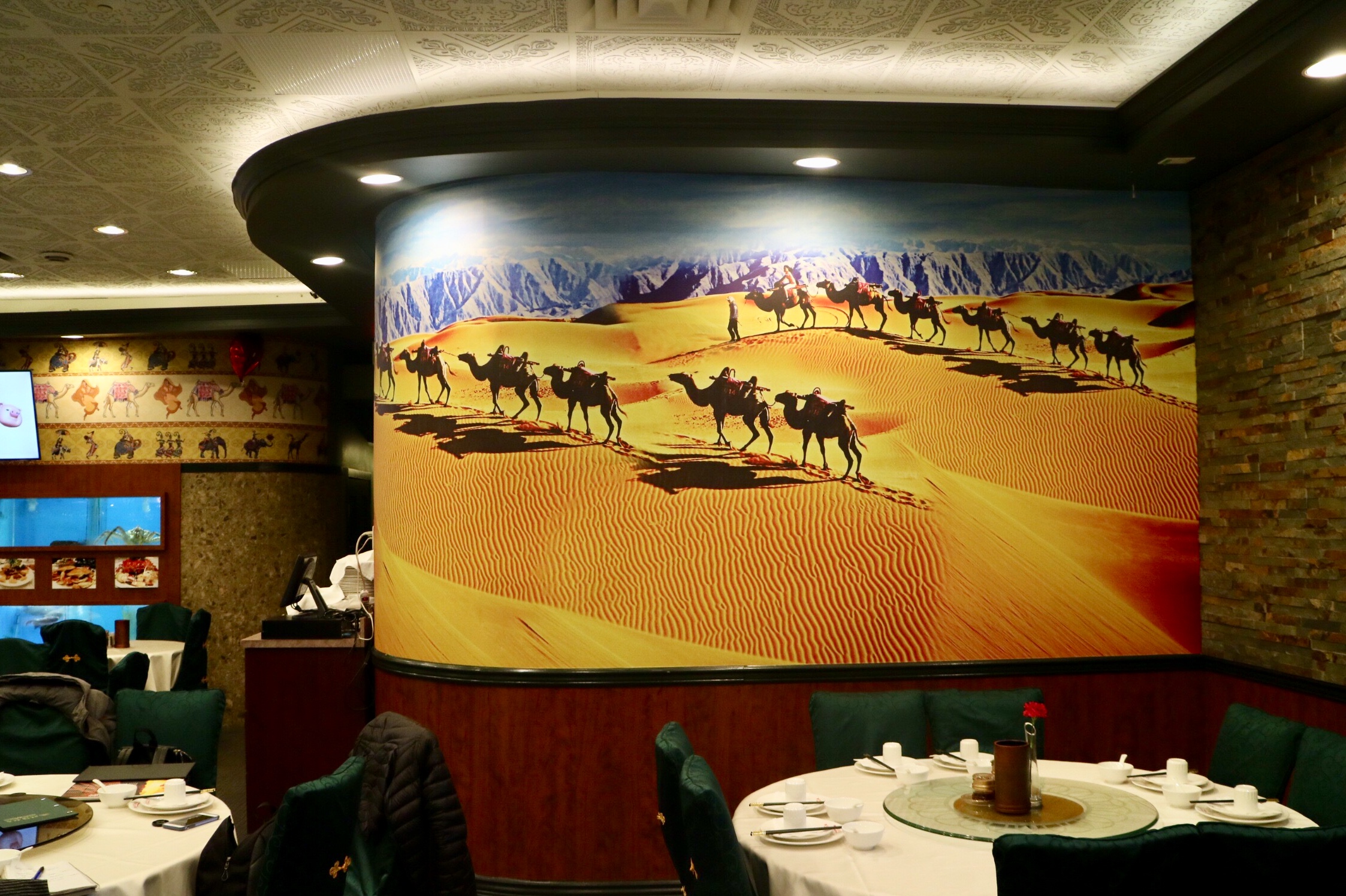
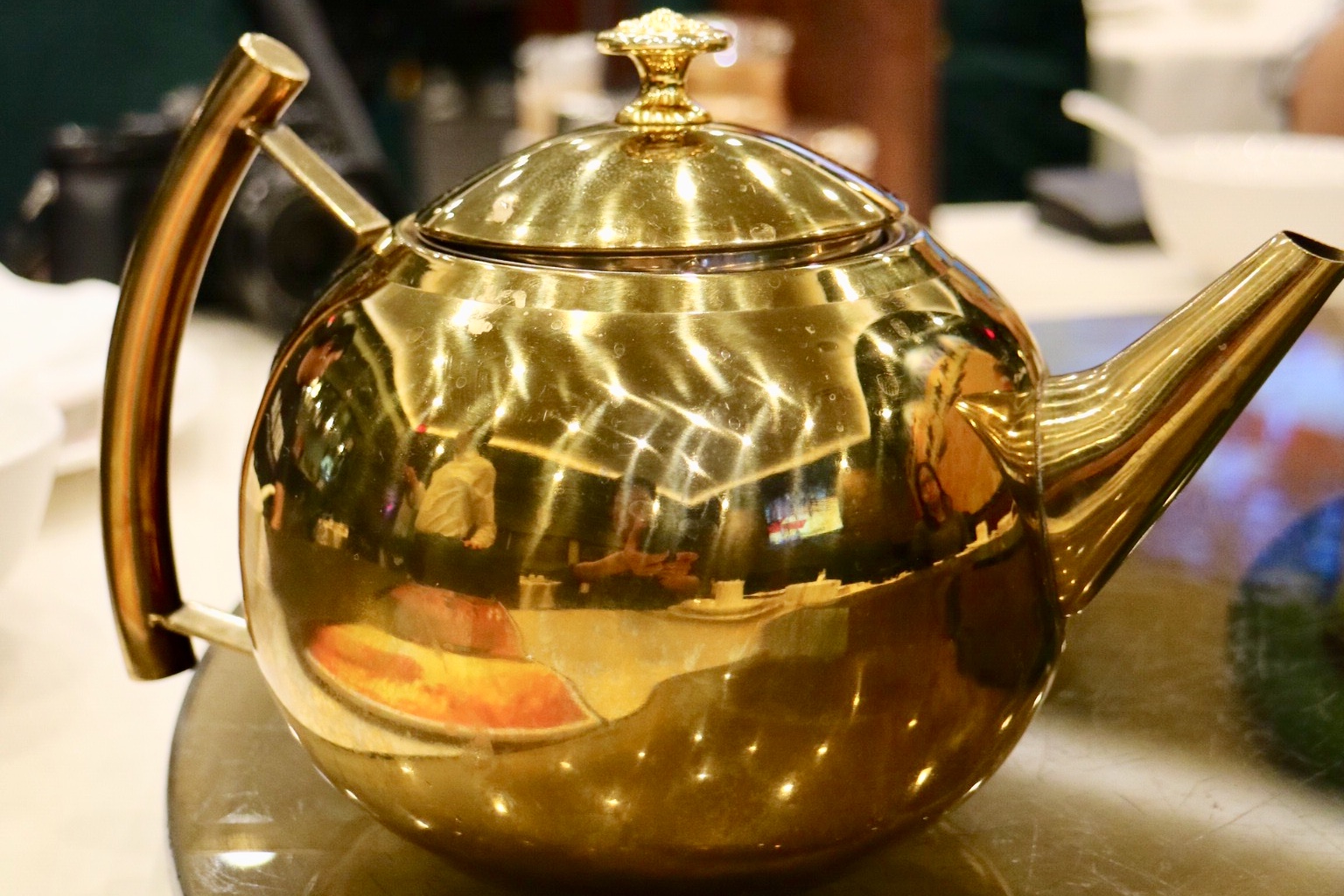
A VIP room is available for hosting bigger parties and it’s equipped with entertainment system, perfect for enjoying karaoke while dining.
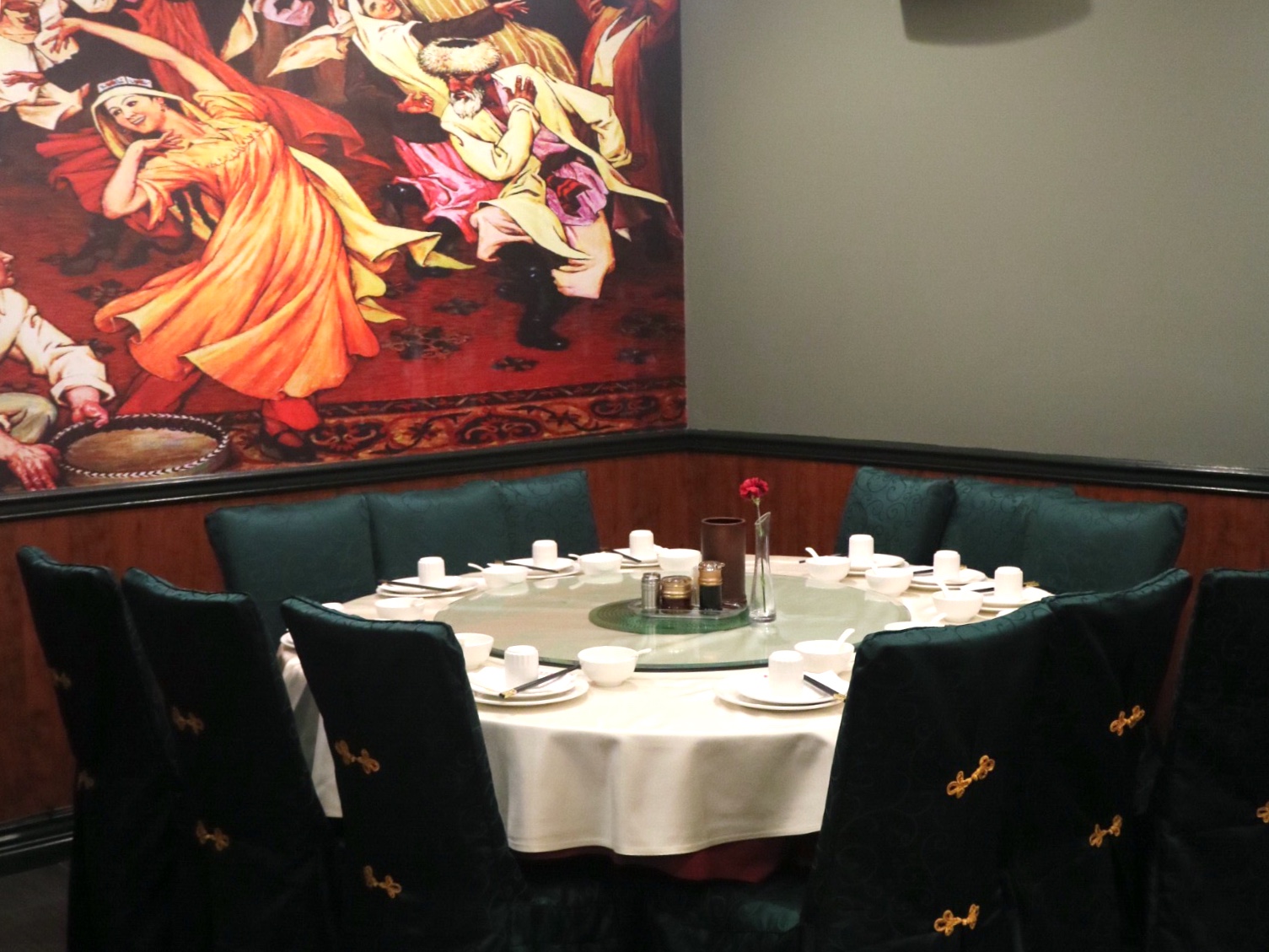
Let’s check out the food!
Daipanji is one of the most famous dishes from Xinjiang, and it is served in 3 sizes here: large ($31.90), medium ($26.90) and small ($22.90).
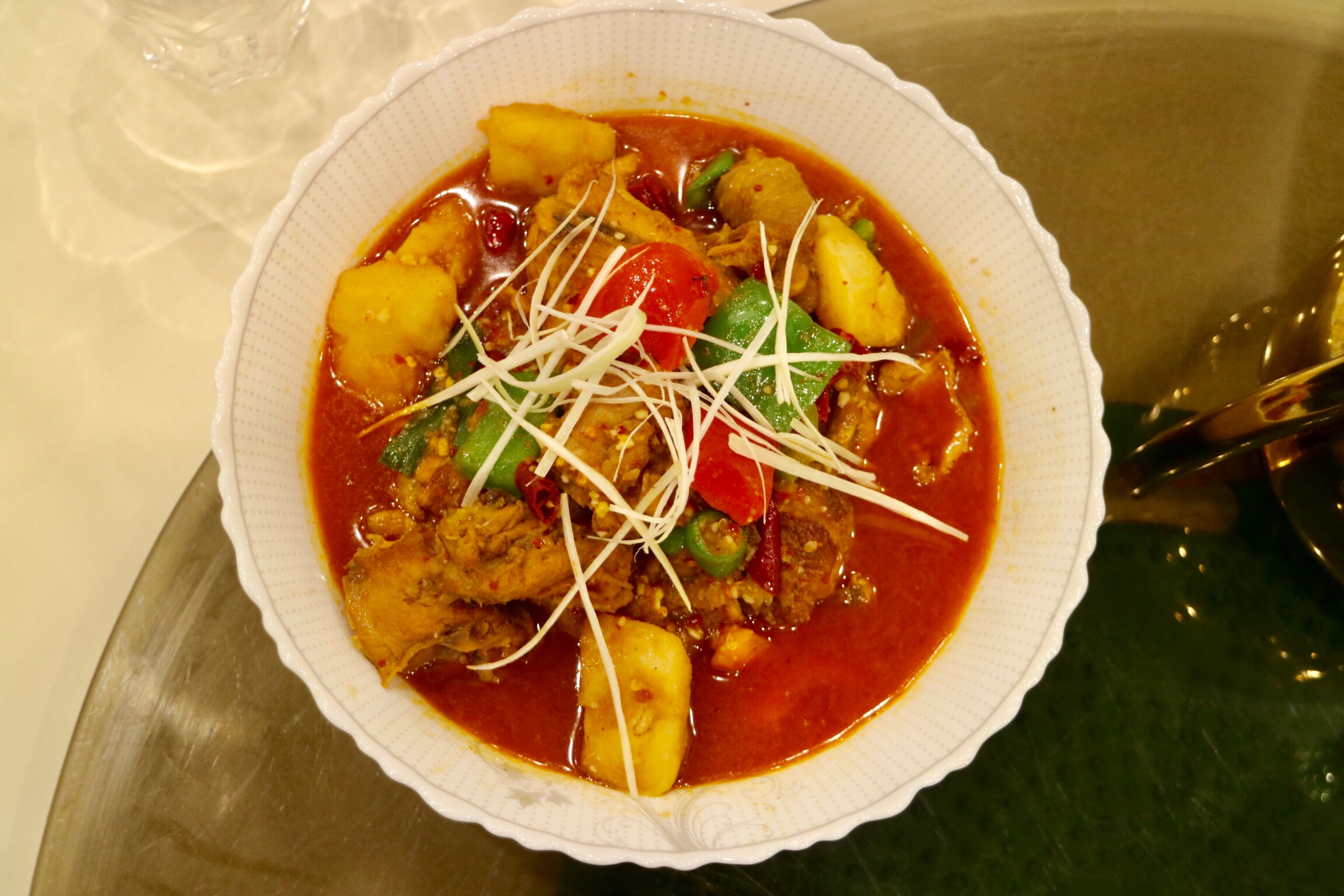
Dapanji literally means “Big Plate Chicken” in Chinese. According to Richard, the dish was created by a militant figure hundreds of years ago, who cooked up this chicken stew using any herbs and spices he could find near the battle camps in the desert.
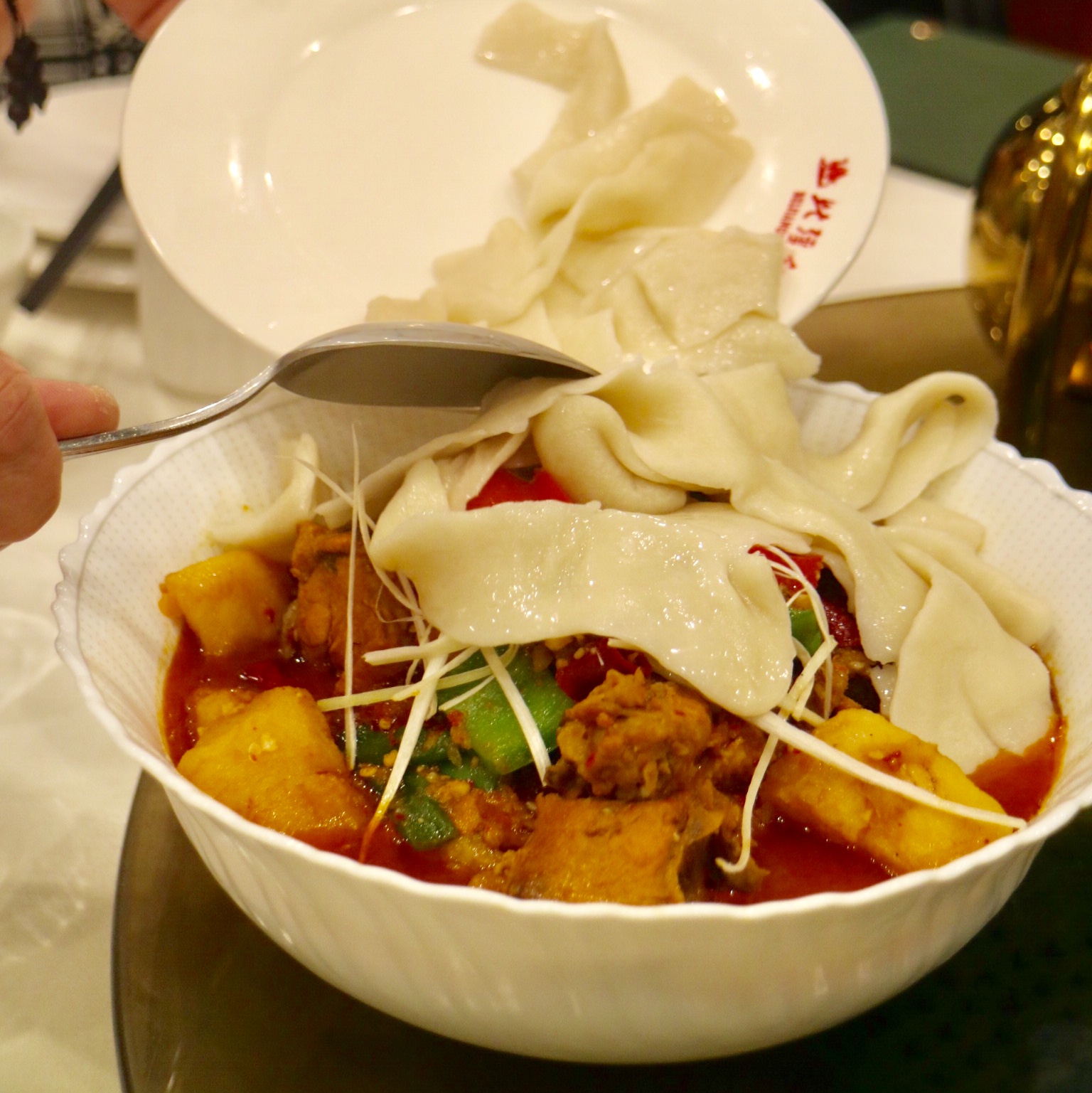
House-made noodles came with the chicken stew. The noodles are cut by hand and cooked to a pleasant texture – soft but still slightly chewy, full of absorbed flavours from the spicy broth in the stew.
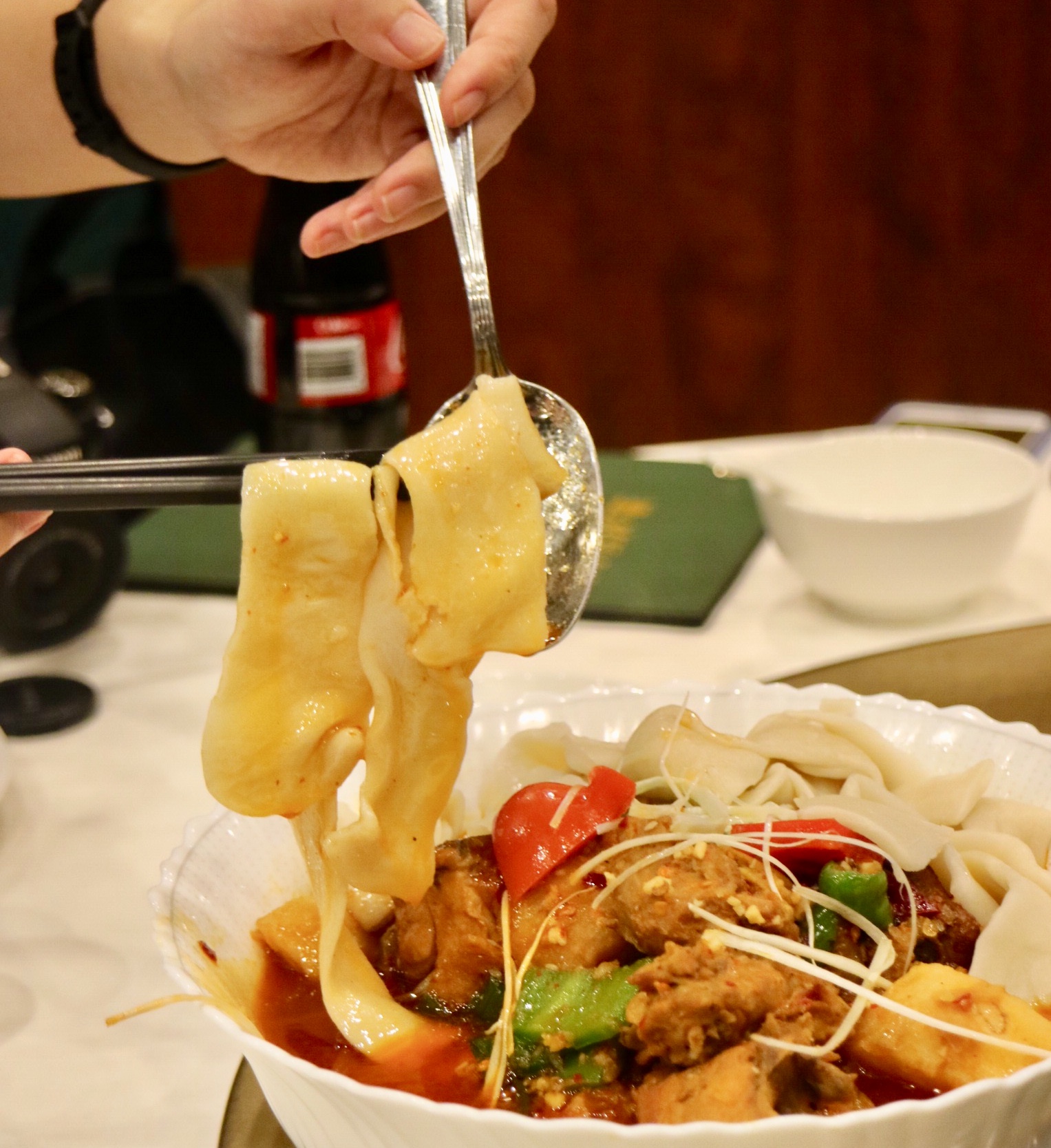
I enjoyed the spicy level of the dish. Having tasted different styles of hot and spicy food, this was quite different. There was a little bit of Hunan, with the chili peppery kick, a little bit of Sichuan, with the numbing sensation, and topped off with the cumin aroma, reminding me of Middle Eastern cooking, a distant cousin of Uyghur cuisine. Free range chicken is used for the dish and the slightly bouncy texture has made the dish even more likable on top of the exciting flavours. As one of their featured dishes, the Dapanji is a must-try.
I also want to mention that, I took the leftover of the dapanji home, and used the sauce to make a soup base for my little hotpot, for cooking my house-made garlic fish dumplings. It was insanely good.
Lauan Twigs Lamb is $3.75 for each skewer, and it was a lot of lamb for such a small price. Used as the skew stick, lauan stick is indestructible and also adds flavour to the lamb, as well the benefits of cooking the lamb more buying klonopin online slowly and more evenly.

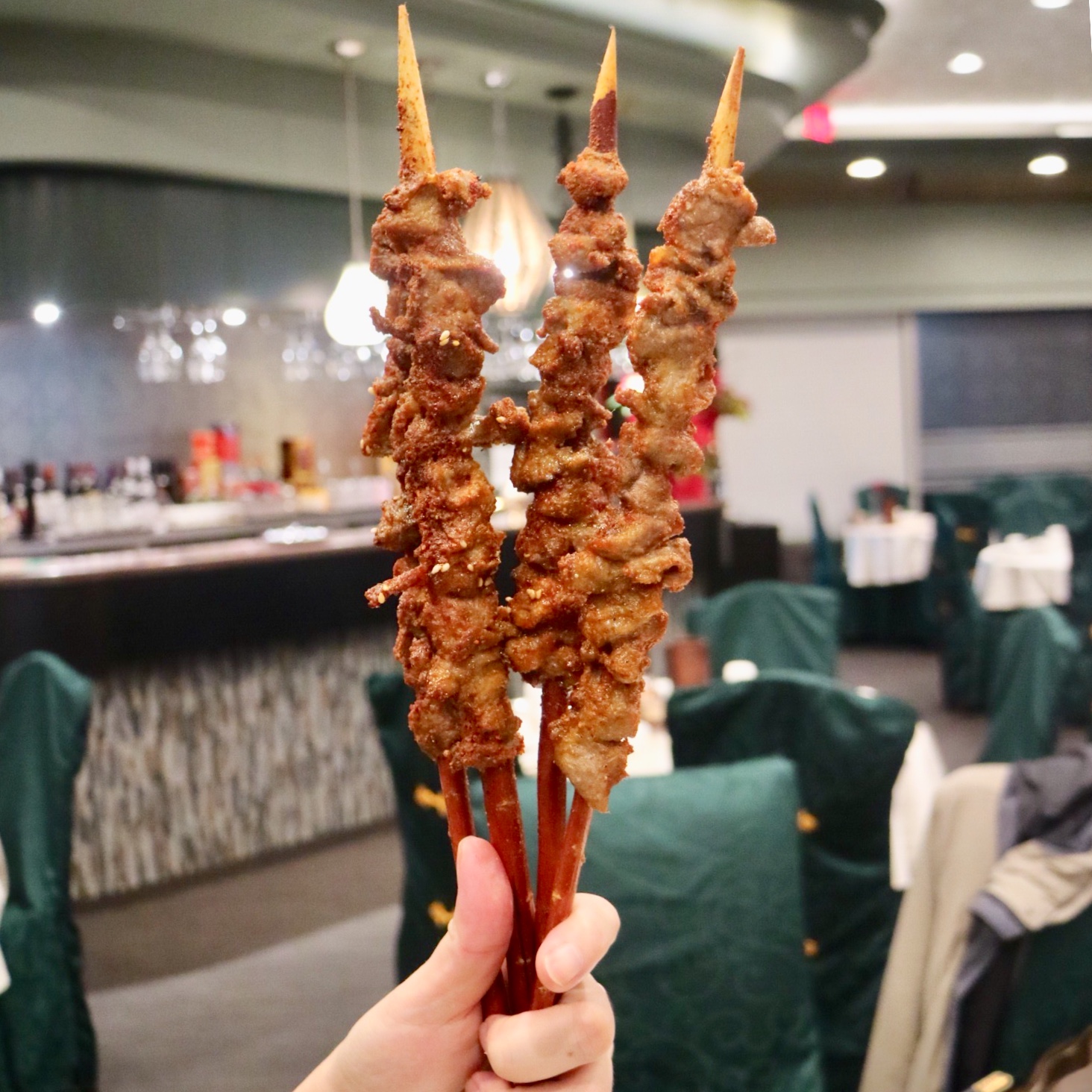
I really enjoyed those little buns in the Stir-fried Lamb with Steamed Buns ($26.99), and the extra effort of slightly deep-frying the buns to golden after steamed, making them the perfect vessels for making little lamb tacos.
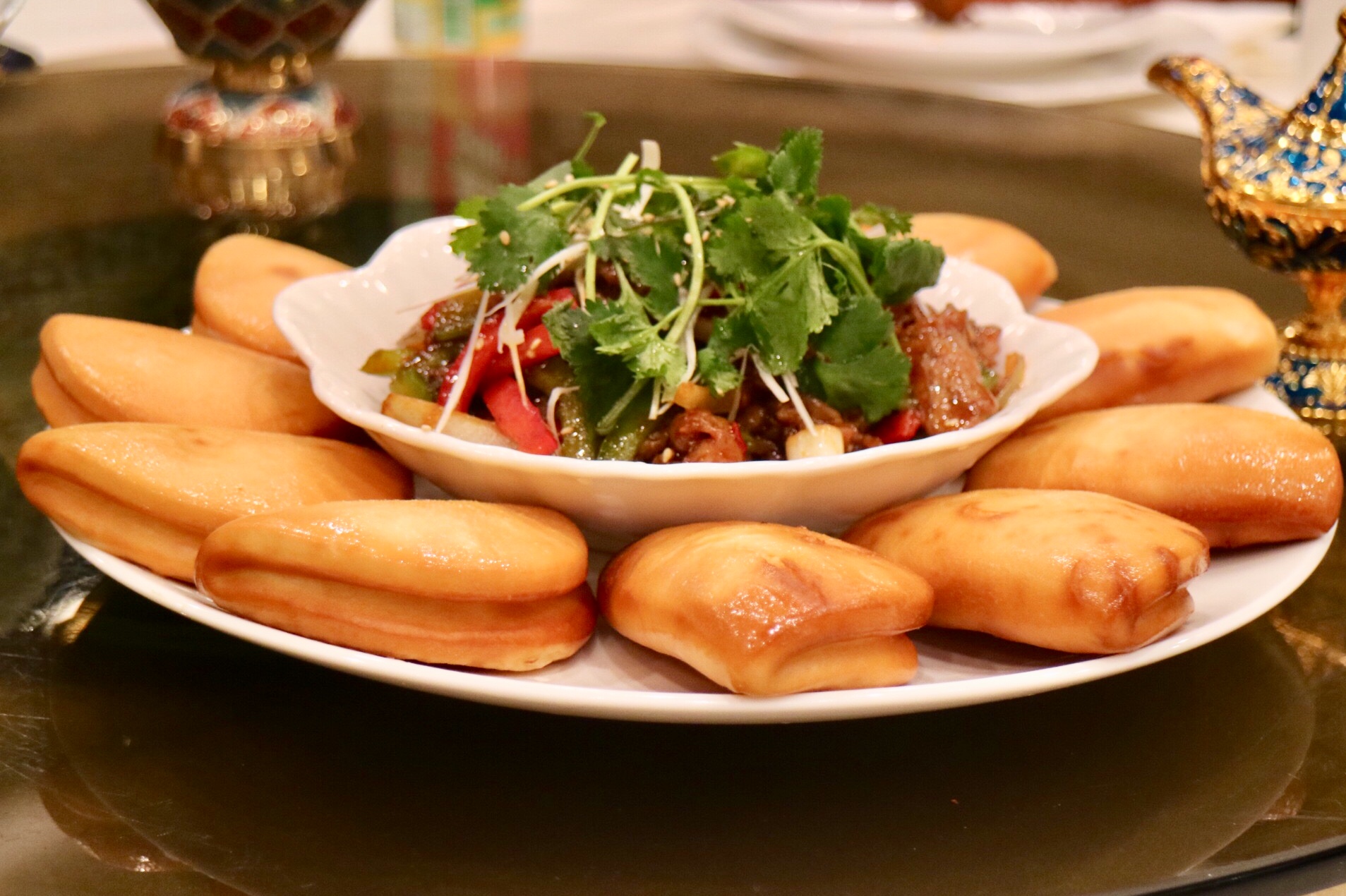
The flavour profile of the stir-fried lamb is similar to Dapanji, but more subtle. Adding a touch of cilantro would elevate the taste and it’s highly recommended.

The Lamb Shank ($11.99) came to the table with the bone wrapped in tinfoil, and it was on a plate wrapped with tinfoil as well. I could see the chef’s rustic approach but it was slightly different visually sitting beside other beautifully presented dishes. Taste wise, this was a less favorable dish as the lamb meat was not as tender as I’d hoped for. I did however like the chili pepper powder, which was similar to the one I recently discovered at Chongqing style hotpot, which will be in my next post!
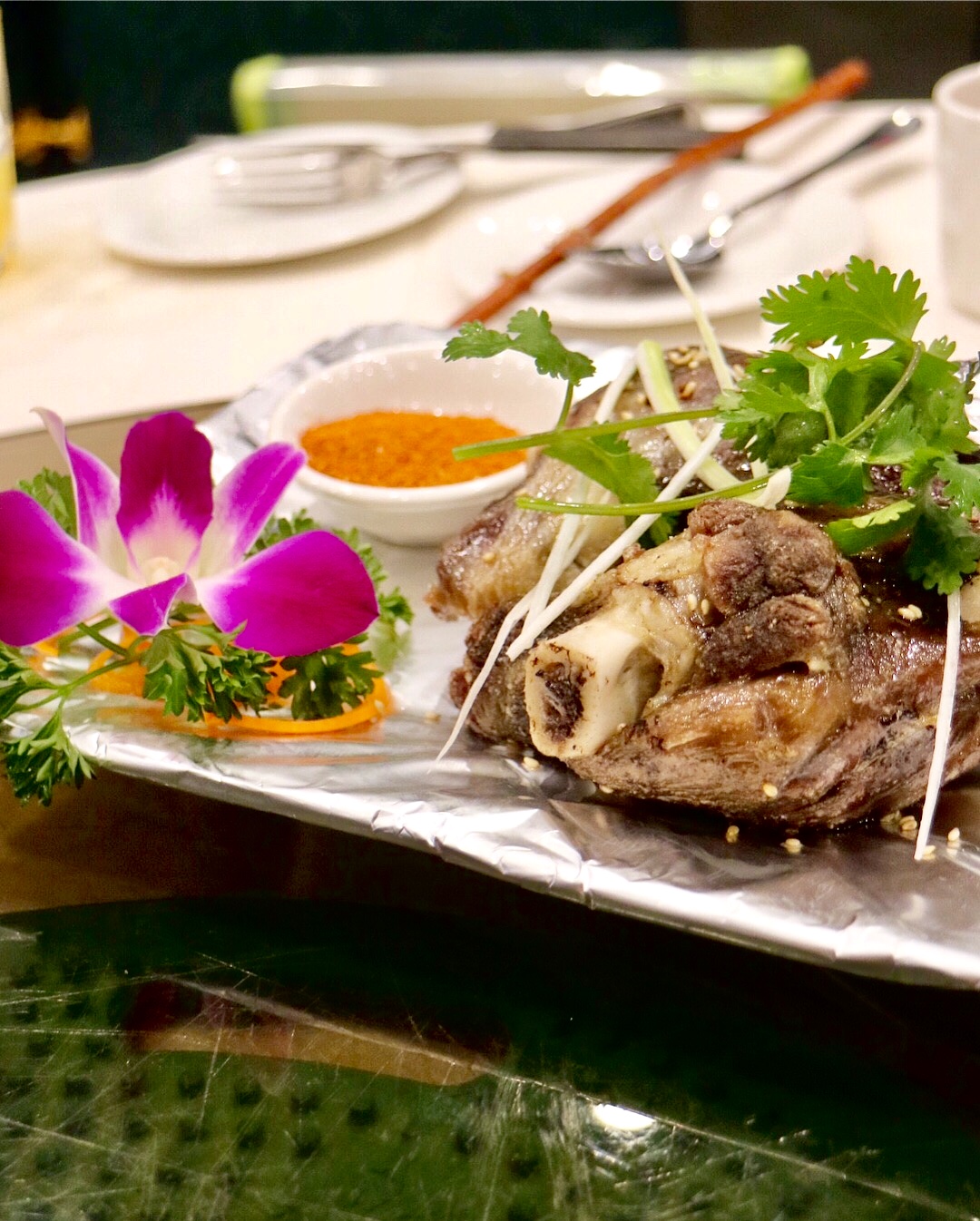
The Lamb Puff Pastry (3 for $6.99) was tasty with the curry and lamb flavour combination. Although not a typical Uyghur dish, it reflects the modern “Beijiang” culture based on both traditions and many different influences from outside of the region.

The final savoury dish we tried was the Lamb Bone Pot, which usually comes in a small pot ($33.99) or a large one ($45.99. The incredible display of large meaty bones stacked neatly in boiling broth, filling the table with aromas of different herbs and spices, it’s quite a feast on its own. Using bronze pot is also a tradition in Uyghur cooking culture.
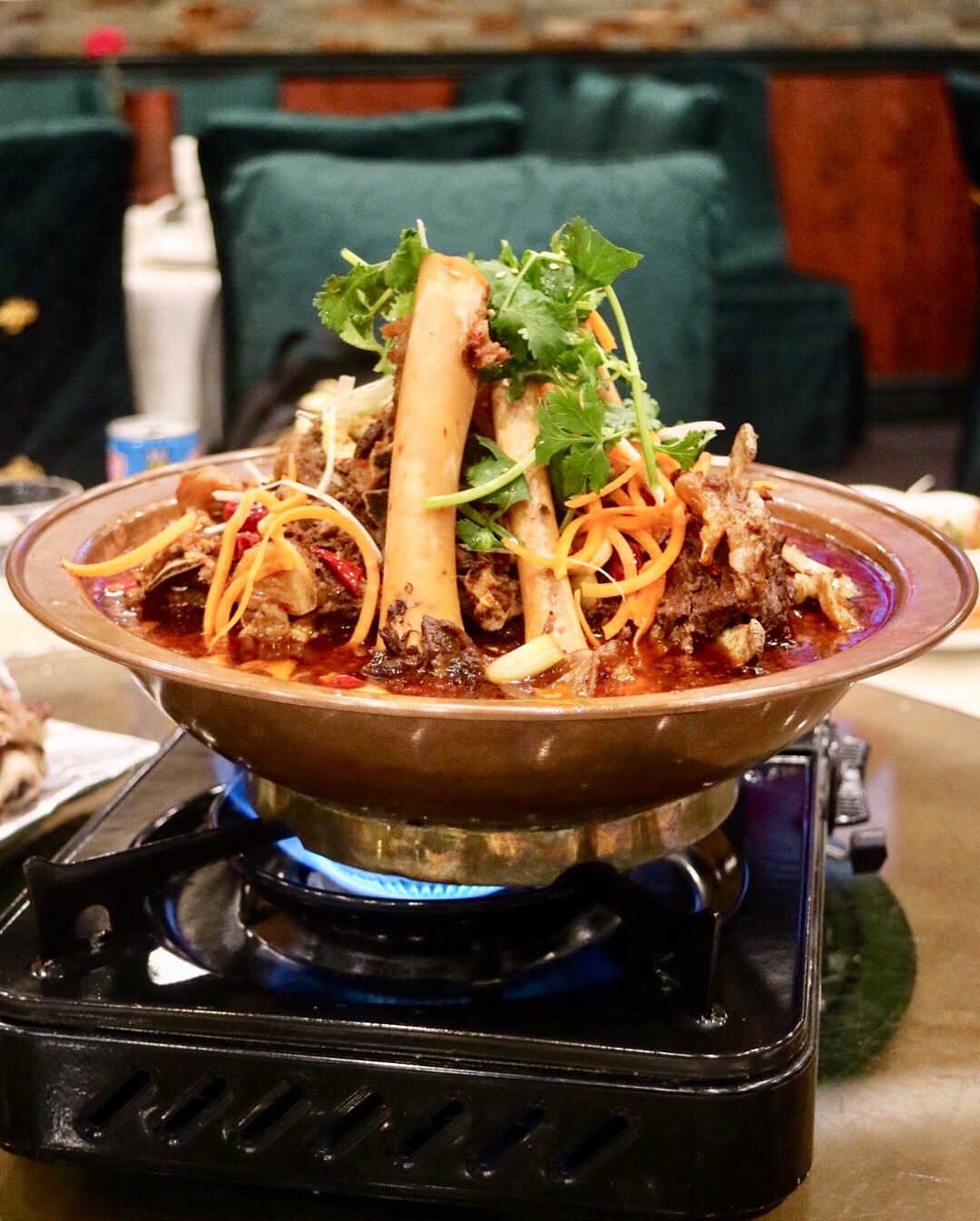
The meat was so tender on the bones and it fell right off when I was picking a piece of bone up.
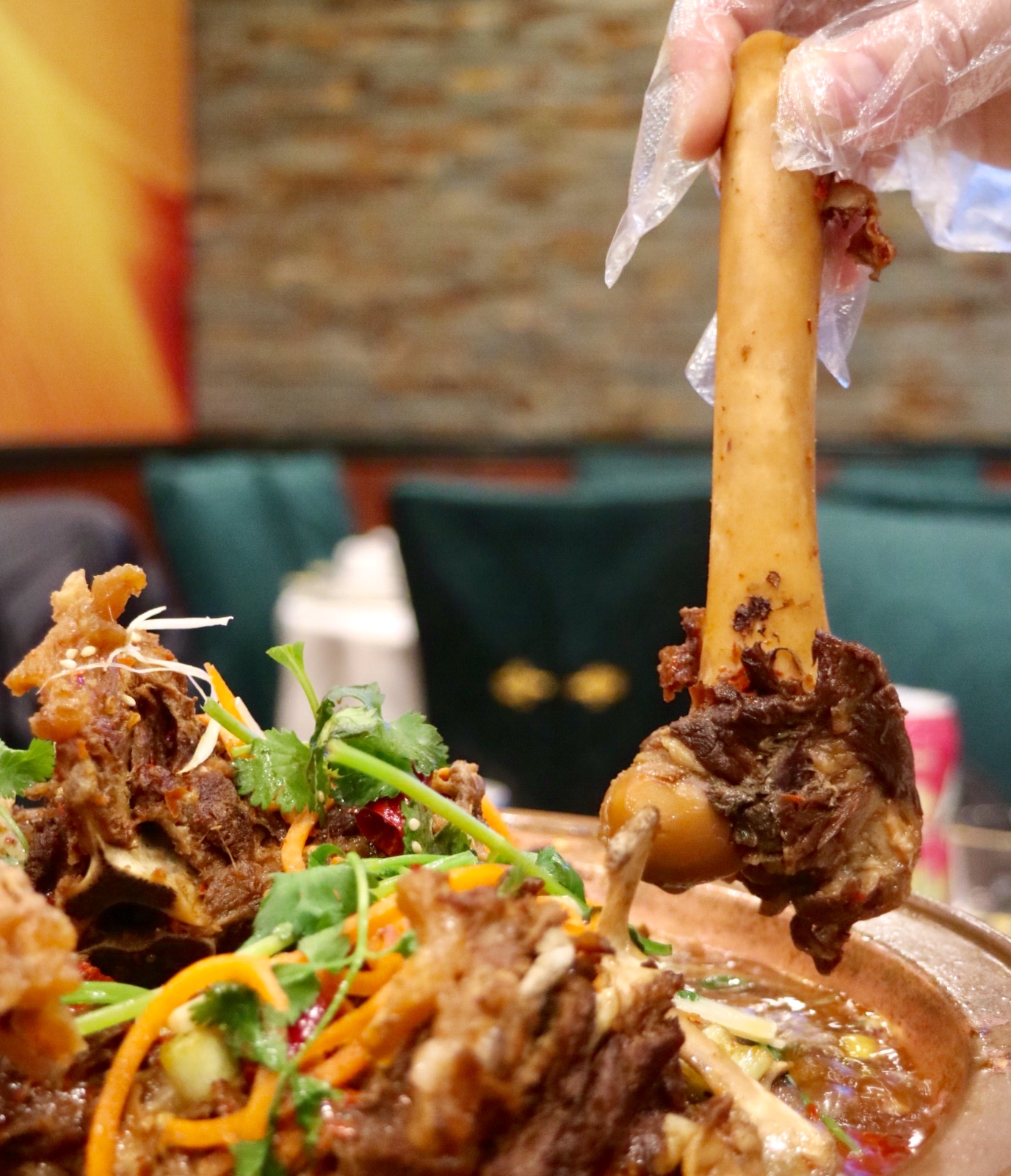
Like the Daipanji, house-made noodles come with the Pot, and technically, it is just one super long hand-pulled noodle! This showcases the chef’s amazing noodle making craft.

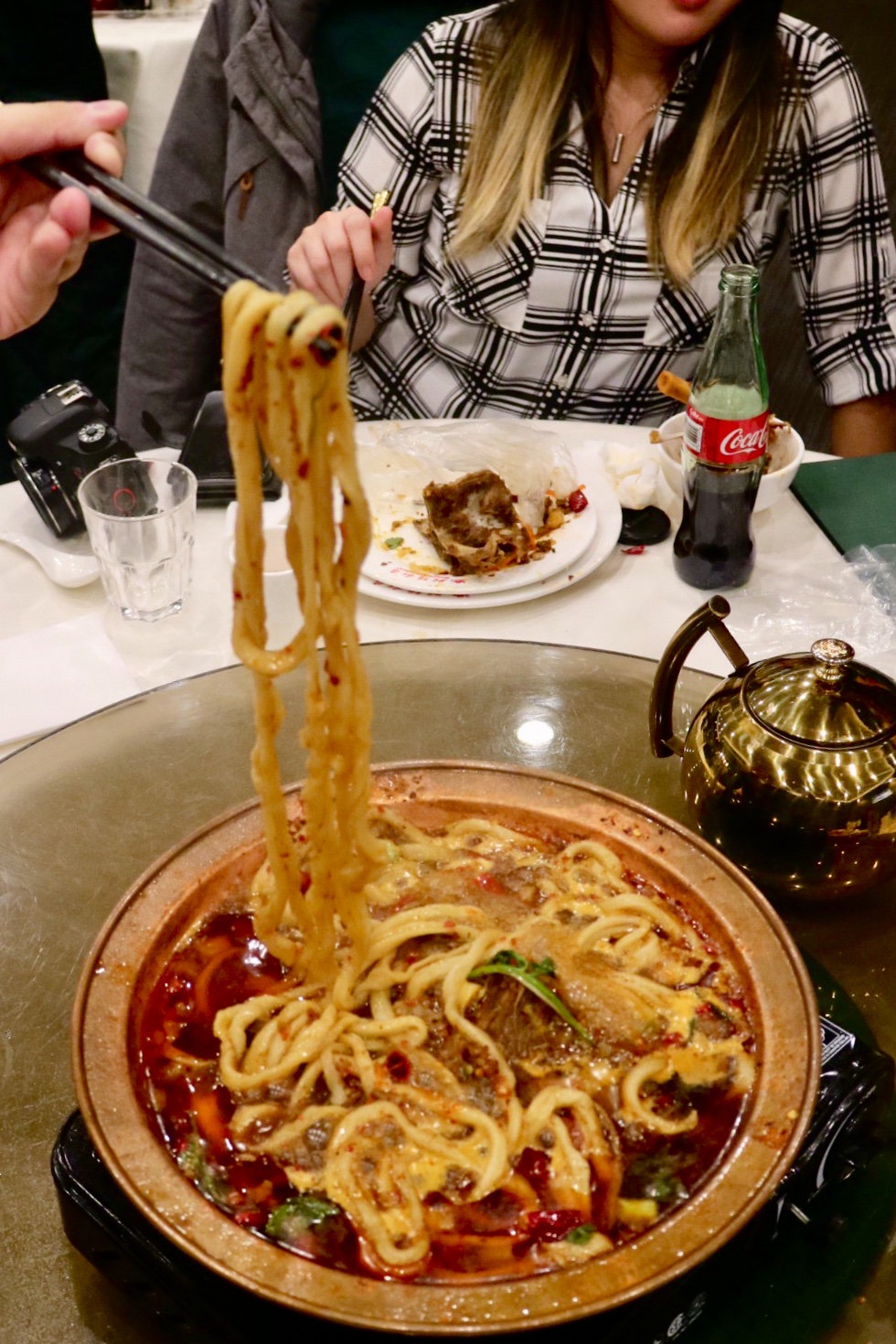
For dessert, the Sweet Corn Pancake was served. The pancakes were loaded with corn kernels and bits of sweet peppers, and topped with sugar. It was sweet and also a little bit smoky. I found it delightful.
Traditional cooking isn’t the only guildeline for Beijiang Restaurant. One of Beijiang’s head chefs Jacky has a Cantonese cooking background, and the kitchen team has determined to reinvent dishes with preparing ingredients often seen in Cantonese dishes such as lobster, rockfish and king crab, but with the bold Uygher flavours.
The first Xinjiang Dapanji experience exceeded my expectations, and I was digging the other Uyghur dishes such as the Lamb on Wood Skewers and Lamb with Steamed Buns as well. Some impressive craft of noodle and pastry making can be also found here. The food here stands out among hundreds of Chinese restaurants with both of their traditional Uyghur cooking and reinventing the classics.
* All dishes tasted in this post were complimentary. Opinions are on the reviewer’s own.
Price: $$
Rating: [wp-review id=”13196″]
Website and menu:
https://www.beijiangrestaurant.ca
More reviews:
Location:
